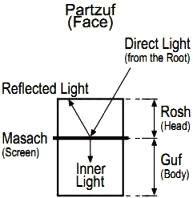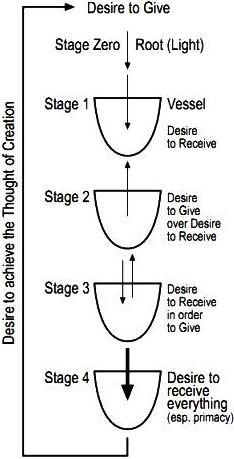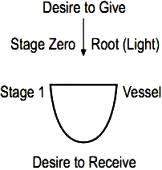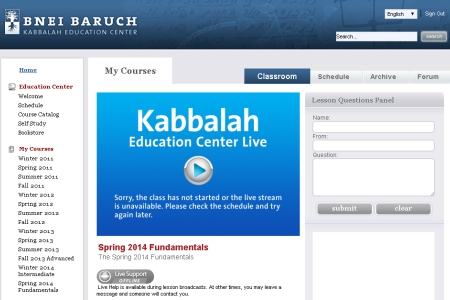What Is a Partzuf?

In “What Are the Four Developmental Stages of the Primordial Desire in Creation?” we discussed the emergence of the desire to receive in Stage One, and the desire to give in Stage Two, as offshoots of the primordial desire to give in the Root. We also showed how because of its desire to give, the desire to receive was reactivated in Stage Three and maximized in Stage Four. Maximizing the desire to receive caused it to want not merely to enjoy, but to actually become like its progenitor—the Root Stage—and even to have the status of the Root Stage’s primacy. The subsequent realization that this was not (yet) possible induced a sense of inherent inferiority in Stage Four, which induced a restriction—elimination of any sensation of pleasure (light).
Also, because Stage Four’s real desire is for the Root’s primacy, it does not settle for the unbounded pleasure received in Stage One. Instead, it wishes to obtain the nature of the Root, the Thought of Creation, and consequently the Root’s primacy.
Thus, the elimination of pleasure in Stage Four is neither a result of its inability to receive, nor a consequence of the Root’s inability to give. The Root gives incessantly, but the desire to receive does not want to receive something as degrading as charity (as described by Ashlag in “The Giving of the Torah”). for this reason, because Stage Four wishes to acquire the giver’s thought and become like its Creator, its restriction is an offshoot of its decision to not receive unless with the intention to bestow, as this reciprocates the Creator’s desire to bestow.
The Structure of a Partzuf
To achieve that, Stage Four builds a three-part mechanism, called Partzuf (face), to determine if it should receive light, and if so, how much, with the aim to bestow at any given moment opportunity. The top section of the Partzuf is called Rosh (Head). Its task is to determine how much of the abundance (light) is to be received by the desire to receive. The desire to receive itself constitutes the bottom part of the Partzuf, which is called Guf (Body).











